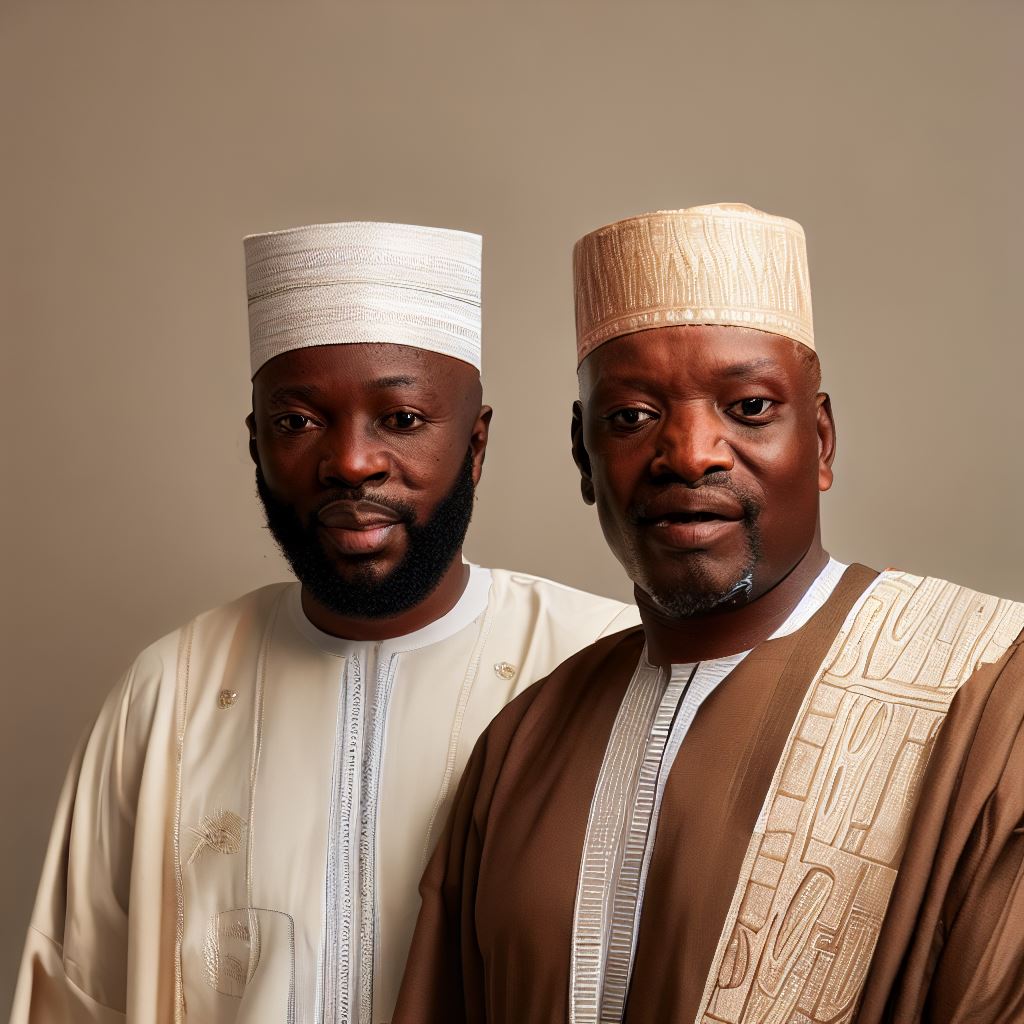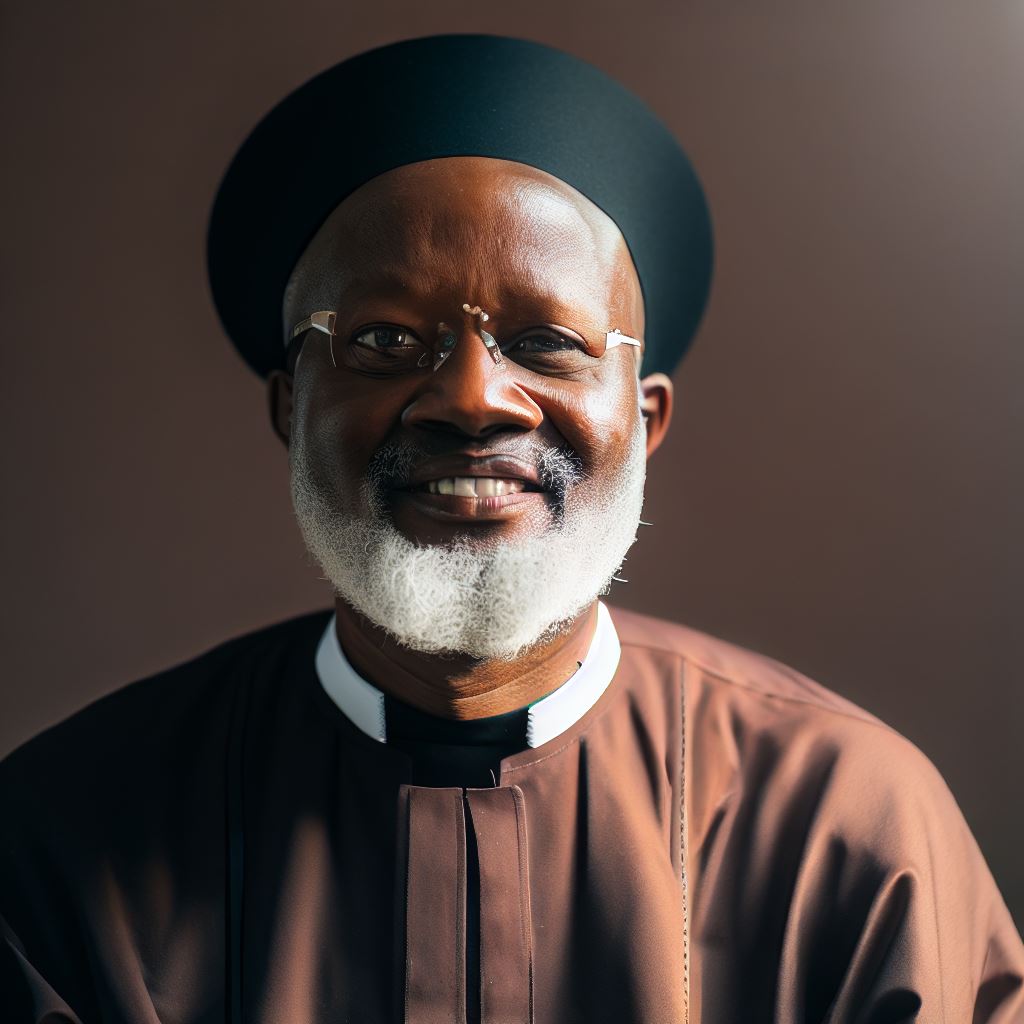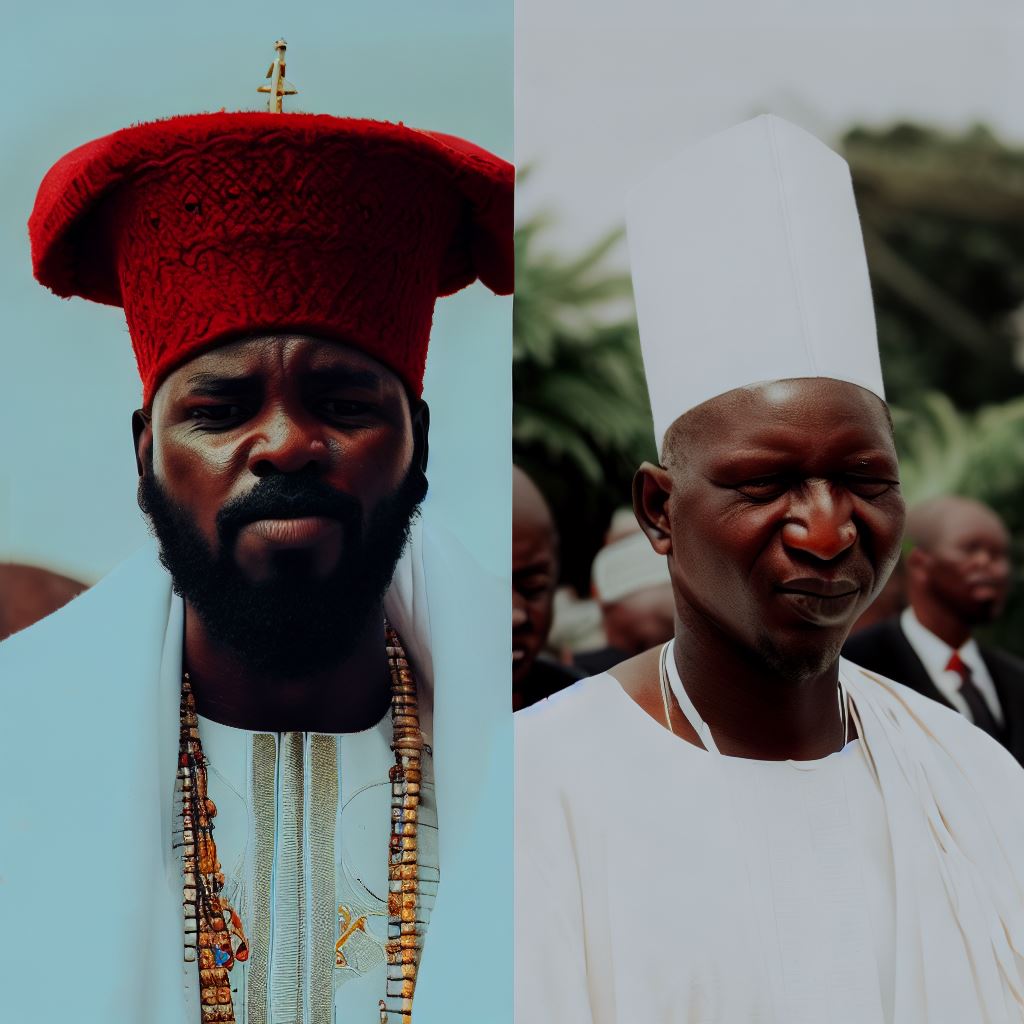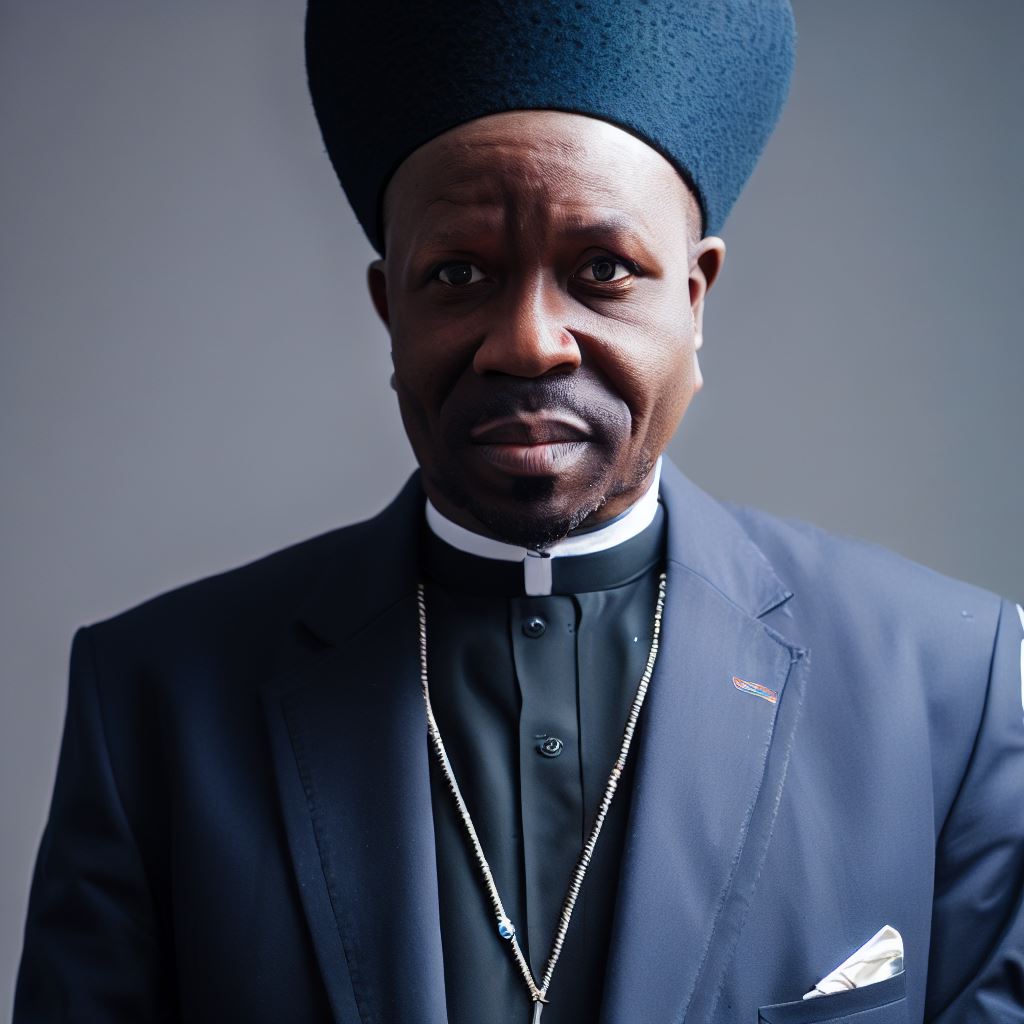Introduction
Nigeria Clergy and Society Impact : Nigeria’s religious landscape is diverse, with Islam and Christianity being the dominant religions.
The clergy holds significant importance in Nigerian society as they play crucial roles in religious and social affairs.
The clergy in Nigeria have a substantial influence and impact on the country’s society.
Religious Landscape:
- Nigeria boasts diverse religious practices, including Christianity, Islam, and indigenous beliefs.
- Religious diversity enriches the country’s cultural tapestry, making it a unique global phenomenon.
Clergy’s Significance:
- Clergy, comprising religious leaders and officials, hold positions of spiritual guidance and moral authority.
- They are pivotal in shaping ethical standards, values, and social cohesion within Nigerian society.
- Through preaching, counseling, and community engagement, the clergy wield immense influence over individuals and communities.
Thesis Statement:
- The clergy in Nigeria exert substantial influence, not only in matters of faith but also in societal transformation.
- This chapter will delve into the multifaceted impact of Nigeria’s clergy on social, cultural, and moral dimensions, highlighting their pivotal role in shaping the nation’s trajectory.
Historical Influence of Religion in Nigeria
Introduction to the early arrival of Christianity and Islam
Christianity and Islam have had a profound impact on Nigeria as they arrived during the colonial era.
The introduction of these religions brought significant changes to the religious, social, and cultural fabric of the country.
During the 19th century, Christian missionaries from Europe began arriving in Nigeria. They aimed to spread Christianity and educate the local population.
Similarly, Muslim scholars from the Middle East and North Africa also arrived, introducing Islam to Nigeria.
The arrival of Christianity and Islam marked a turning point in Nigeria’s history, as these religions offered new belief systems and alternative ways of life for Nigerians to embrace.
Development of religious institutions in Nigeria
With the arrival of Christianity and Islam, religious institutions started to develop in Nigeria. Missionaries established churches and built schools, hospitals, and orphanages.
They aimed to provide education and healthcare alongside spreading their religions.
Similarly, Muslim scholars built mosques and Islamic schools to propagate Islam and educate the population.
These institutions became centers of religious learning and gathering for Nigerians who converted to these faiths.
The development of religious institutions played a crucial role in the spread of Christianity and Islam in Nigeria by providing people with a place to worship, receive religious guidance, and learn about their faiths.
Role of the early clergy in shaping societal norms and values
The early clergy in Nigeria played a significant role in shaping societal norms and values.
They were instrumental in introducing and promoting moral teachings, emphasizing the importance of family values, honesty, and integrity.
Through their sermons, teachings, and pastoral care, the clergy influenced the behaviors and attitudes of their followers.
They preached against vices such as polygamy, witchcraft, and idol worship, encouraging their congregations to embrace righteous living.
The early clergy also played a crucial role in addressing social issues such as poverty, illiteracy, and healthcare.
They established schools, provided healthcare services, and advocated for social justice, contributing to the overall development of society.
Transition from traditional religions to Christianity and Islam
The impact of the clergy led to a gradual transition from traditional religions to Christianity and Islam in Nigeria.
As people witnessed the positive changes brought by these religions, they began to embrace them and leave behind their traditional belief systems.
The transition was not without resistance, as some Nigerians held onto their ancestral religions.
However, the influence of the clergy, coupled with the provision of education and healthcare, made Christianity and Islam more appealing and practical options for many.
Today, Nigeria is predominantly Christian in the southern regions and Muslim in the northern regions, reflecting the profound impact of the early clergy in shaping the religious landscape of the country.
The historical influence of religion, particularly Christianity and Islam, in Nigeria cannot be overstated.
The arrival of these religions and the efforts of the early clergy have shaped societal norms, values, and the overall religious landscape of the country.
Read: Training for Clergy in Nigeria: A Comprehensive Review
Social Services Provided by the Clergy
The various roles performed by Nigerian clergy
In Nigeria, the clergy plays a crucial role in not only spiritual matters but also in providing essential social services to the communities they serve.
These religious leaders serve as a pillar of support and guidance for their congregations, and their influence extends beyond the walls of the church.
They are actively involved in addressing societal challenges and meeting the needs of their communities.
The clergy’s role in education and healthcare
Education and healthcare are two crucial sectors where the clergy actively contribute to societal development.
Many religious organizations in Nigeria establish schools and educational institutions to provide quality education to children, especially those from disadvantaged backgrounds.
These schools often prioritize moral and ethical values alongside academic excellence.
In the healthcare sector, religious organizations and clergy members are at the forefront of providing medical assistance to those in need.
They establish clinics, hospitals, and health centers to offer affordable and accessible healthcare services to underserved communities.
Through their initiatives, they not only address physical ailments but also promote overall well-being and holistic health.
Impact of religious organizations on poverty alleviation and community development
Religious organizations in Nigeria play a significant role in poverty alleviation and community development.
They recognize the devastating effects of poverty on individuals and communities and actively work towards bringing about positive change.
These organizations initiate various projects aimed at empowering the less privileged and improving their living conditions.
Through employment schemes, vocational training programs, and microfinance initiatives, the clergy provide opportunities for economic growth and self-sustainability.
Additionally, they engage in community development projects such as infrastructure development, clean water provision, and sanitation improvement, which contribute to the overall well-being and progress of society.
Examples and case studies highlighting specific initiatives by the clergy
Several notable examples highlight the impactful initiatives undertaken by the Nigerian clergy in the realm of social services.
One such example is the “Education for All” program initiated by a prominent religious organization.
This program aims to provide free education and scholarships to underprivileged children, ensuring they have equal opportunities for a brighter future.
Another case study is the establishment of a comprehensive healthcare center by a group of religious leaders.
This facility offers medical services, including preventive care, treatment, and counseling, to individuals irrespective of their socioeconomic status.
Through this initiative, the clergy actively contribute to improving the health outcomes of the community.
The clergy’s dedication to social services is also evident in their efforts to combat poverty.
Many religious organizations have set up skill acquisition centers, where individuals receive training in various trades and crafts.
This equips them with the necessary skills to become self-reliant and break free from the cycle of poverty.
Furthermore, religious leaders actively engage in campaigns and awareness programs centered around social issues such as gender equality, human rights, and environmental conservation.
These initiatives foster a sense of social responsibility and encourage collective action for the betterment of society.
The Nigerian clergy’s influence extends far beyond religious matters. They actively engage in the delivery of social services, impacting education, healthcare, poverty alleviation, and community development.
Through their initiatives, they address societal challenges, promote well-being, and contribute to the overall progress of Nigeria.
Read: How to Join the Clergy in Nigeria: A Step-by-Step Guide
Political Influence and Controversies Involving the Clergy
Historical involvement of religious leaders in Nigerian politics
Historically, religious leaders in Nigeria have held positions of power within the government, often acting as advisors to political leaders.
Their influence has been rooted in the belief that they possess divine guidance, making them valuable actors in decision-making processes.
Controversies and debates surrounding the clergy’s political role
However, controversies regarding the clergy’s involvement in politics have become more apparent in recent years.
Critics argue that religious leaders should focus solely on spiritual matters and not interfere in political affairs.
They claim that the clergy should be neutral and provide guidance to individual believers rather than taking partisan positions.
One example of controversy surrounding the clergy’s political role is the issue of endorsement and support for political candidates during elections.
Some religious leaders have been known to openly endorse particular candidates, which has raised concerns about impartiality and fairness in the electoral process.
The impact of the clergy’s political influence on Nigeria’s governance and policies
Another issue is the influence of religious leaders on government policies. The clergy’s political influence has often resulted in the implementation of policies that align with their religious beliefs.
This has raised questions about the secular nature of the Nigerian state and the extent to which religious principles should shape public policy.
Public perception and opinion on the clergy’s involvement in politics
Public perception of the clergy’s involvement in politics varies. Some Nigerians believe that religious leaders have an important role to play in shaping public discourse and influencing political decision-making.
They argue that religious values are integral to Nigeria’s cultural fabric and should be taken into consideration in governance.
On the other hand, there are those who view the clergy’s involvement in politics as a threat to democratic principles and the separation of church and state.
They argue that allowing religious leaders to actively participate in political affairs undermines the secular nature of the Nigerian state and compromises the rights and freedoms of citizens.
The clergy’s political influence in Nigeria has had both positive and negative consequences.
While religious leaders have played a historical role in shaping Nigeria’s governance and policies, their involvement in politics has also generated controversies.
Public perception and opinion on the clergy’s political role are diverse, reflecting the complex relationship between religion, politics, and governance in Nigeria.
Read: Women in Nigeria’s Clergy: Roles and Responsibilities
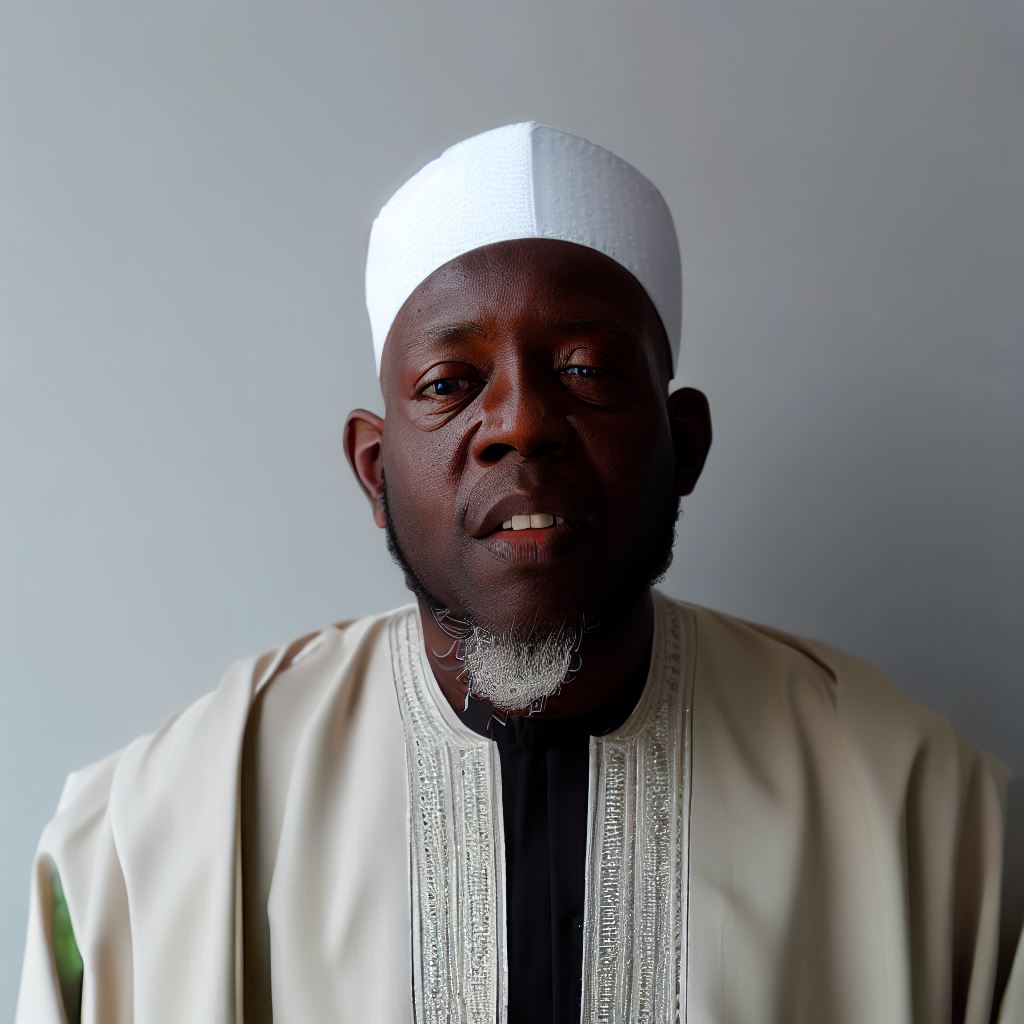
Moral and Ethical Guidance Provided by the Clergy
The clergy’s role as moral guardians in Nigerian society
- The clergy in Nigeria play a vital role as moral guardians in the society.
- They are looked upon for guidance on ethical and moral dilemmas.
- Their teachings, based on religious principles, address societal issues and provide moral guidance.
The influence of religious teachings on societal behavior and ethical standards
- Religious teachings have a profound impact on societal behavior and ethical standards in Nigeria.
- People often follow the moral guidelines provided by their religious leaders.
- Religious teachings shape the values and principles that guide interpersonal relationships.
The impact of clergy-guided moral values on individual decision-making
- Clergy-guided moral values influence individual decision-making in society.
- People often make choices based on religious teachings they have been exposed to.
- The moral values taught by clergy guide individuals in evaluating the consequences of their actions.
Critiques and challenges to the clergy’s moral authority
- Despite their significant role, the clergy face critiques and challenges to their moral authority.
- Some argue that the clergy’s teachings are outdated and do not align with modern societal values.
- Others question the clergy’s involvement in political and social issues, suggesting a blurred line between religion and governance.
However, the clergy’s moral authority remains influential in shaping societal norms and guiding individual behavior.
Overall, the clergy in Nigeria serve as moral guardians in society, offering guidance based on religious teachings.
They play a crucial role in shaping ethical standards and influencing individual decision-making.
Although they face critiques and challenges, their moral authority continues to impact Nigerian society.
The teachings of the clergy provide a moral compass that helps individuals navigate ethical dilemmas and make informed choices.
The clergy’s role in providing moral and ethical guidance in Nigeria is significant and deserving of recognition.
Read: A Day in the Life of a Nigerian Priest: A True Account
Challenges Faced by the Clergy in Contemporary Nigerian Society
The challenges faced by religious leaders in Nigeria today
- Religious leaders in Nigeria are confronted with numerous challenges in today’s society.
- These challenges often test their faith, integrity, and ability to lead their congregations effectively.
The influence of corruption and materialism on the clergy
- Corruption and materialism have had a profound impact on the clergy in Nigeria.
- Some religious leaders have succumbed to the allure of wealth, compromising their spiritual values.
- This compromises the clergy’s moral authority and their ability to provide spiritual guidance to their followers.
- The desire for material gain has led to a decline in the commitment to service among some clergy members.
- Corruption within the clergy erodes trust and credibility, diminishing the influence of religious institutions in Nigeria.
The rising influence of the prosperity gospel and its impact on the clergy and society
- The rise of prosperity gospel has become a significant challenge for the clergy in Nigeria.
- This teaching promotes the idea that faith will lead to financial prosperity and material blessings.
- Some religious leaders exploit this teaching for personal gain, manipulating their followers for financial benefits.
- The focus on material gain detracts from the essence of true spirituality and the message of social justice.
- Society becomes obsessed with attaining wealth, neglecting important moral and ethical values.
- The prosperity gospel also fosters an environment where corruption and materialism can thrive, further challenging the clergy’s role.
Handling religious extremism and conflicts within Nigerian religious communities
- Nigeria faces religious extremism and conflicts among various religious communities.
- The clergy plays a crucial role in addressing these challenges by promoting dialogue and understanding.
- They are tasked with promoting peace, tolerance, and coexistence among diverse religious groups.
- Religious leaders must address the causes and ideologies behind religious extremism.
- This requires courage, deep understanding of religious texts, and effective communication skills.
- The clergy must also work together to build bridges between different religious communities and foster a sense of unity.
The clergy in Nigeria faces multiple challenges in contemporary society. Corruption and materialism, the rising influence of prosperity gospel, and religious extremism pose significant hurdles for religious leaders.
Addressing these challenges requires a strong commitment to spiritual values, moral integrity, and effective leadership skills.
The clergy’s ability to navigate these obstacles is crucial in shaping a more inclusive and peaceful society in Nigeria.
You Might Also Like: Women in the Pastoral Profession: Nigeria’s Evolving Scene
Conclusion
Recap of the clergy’s impact on Nigerian society
Throughout this blog post, we have explored the significant impact of Nigeria’s clergy on society. The clergy plays a crucial role in shaping the social, cultural, and political landscape of the country.
Publish Your Professional Profile, Business or Brand
Showcase your expertise, gain trust, and boost visibility instantly on Professions.ng.
Publish NowThey serve as moral leaders, influencers, and guides to the people.
Recognition of the clergy’s contributions and challenges
We acknowledge the valuable contributions made by the clergy, such as promoting moral values, providing social services, and fostering unity among different religious groups.
However, they also face numerous challenges, including corruption, abuse of power, and the need for better regulation.
Final thoughts on the future of Nigeria’s clergy and society
Looking ahead, it is essential for the clergy to continue addressing societal issues and promoting peace, justice, and equality.
They must strive for transparency, accountability, and ethical conduct to maintain trust and respect. The clergy should adapt to the changing demographics and needs of society and actively engage with the youth.
Ultimately, the future of Nigeria’s clergy and society depends on their ability to evolve and adapt to the challenges and opportunities that lie ahead.

